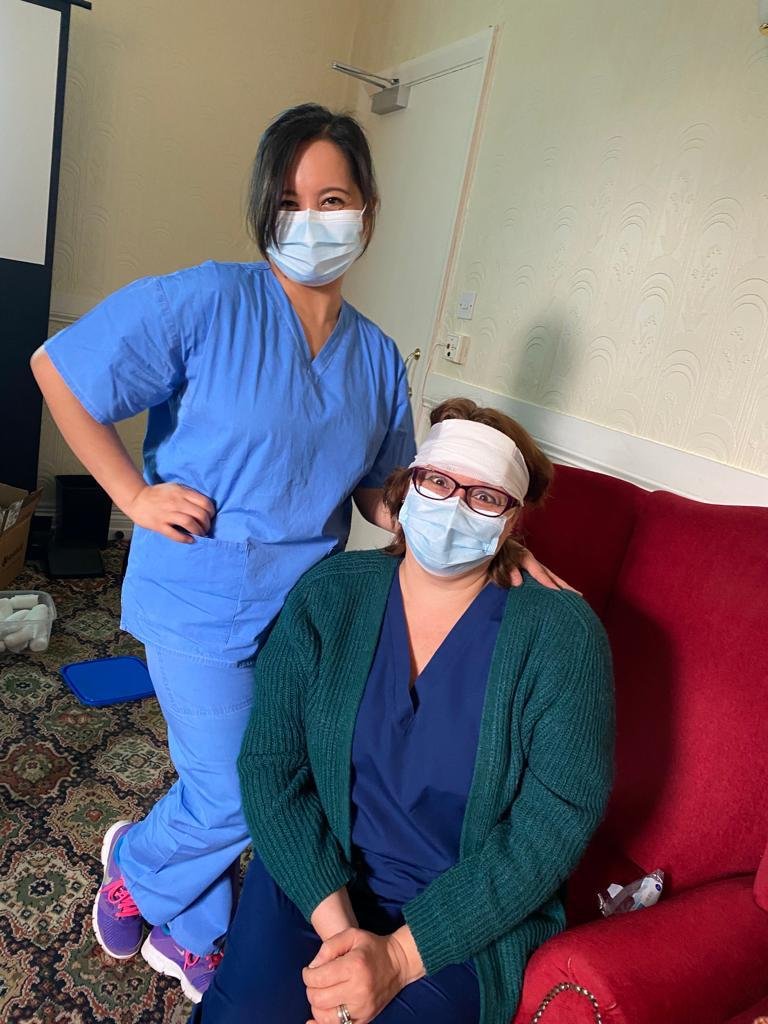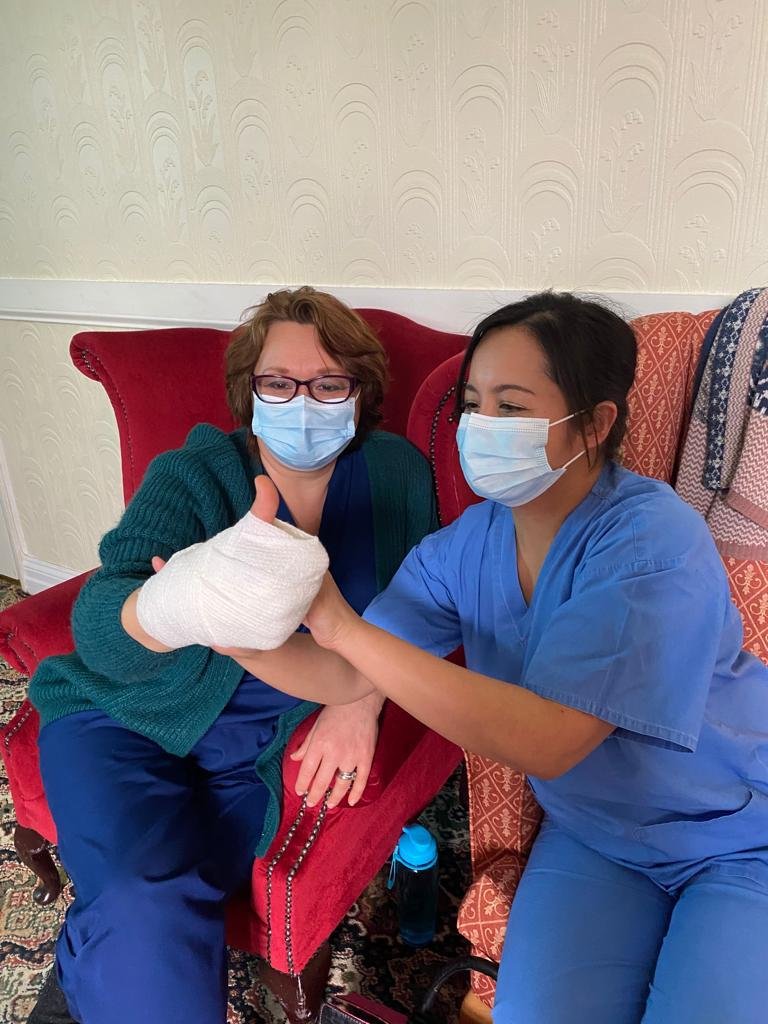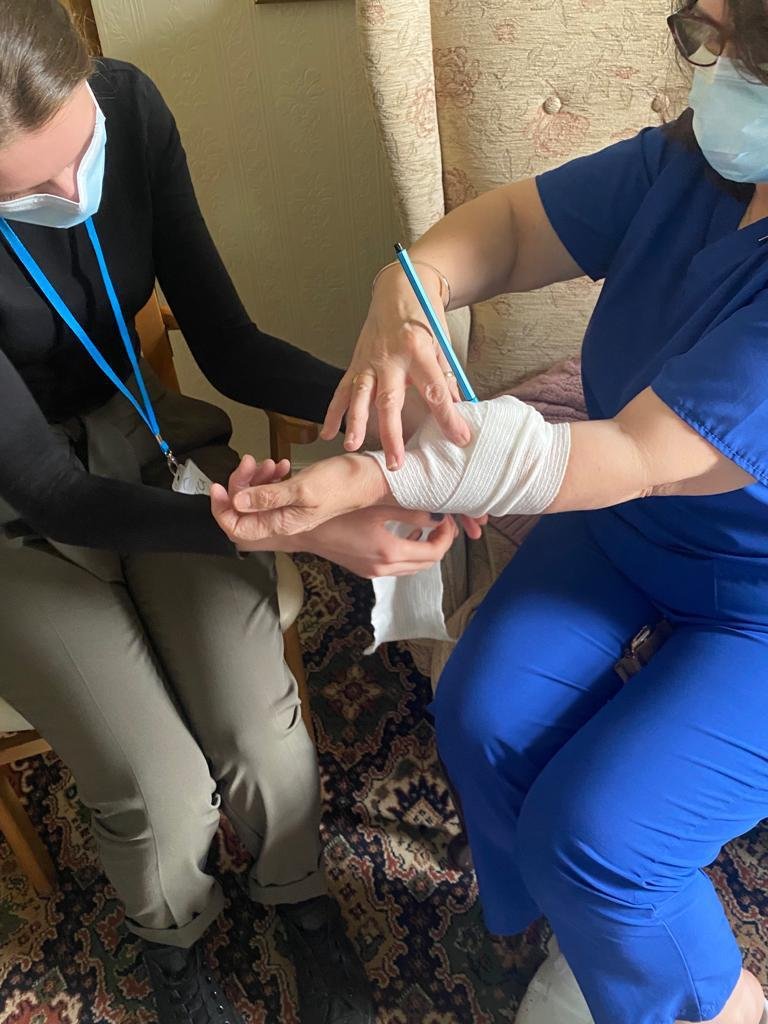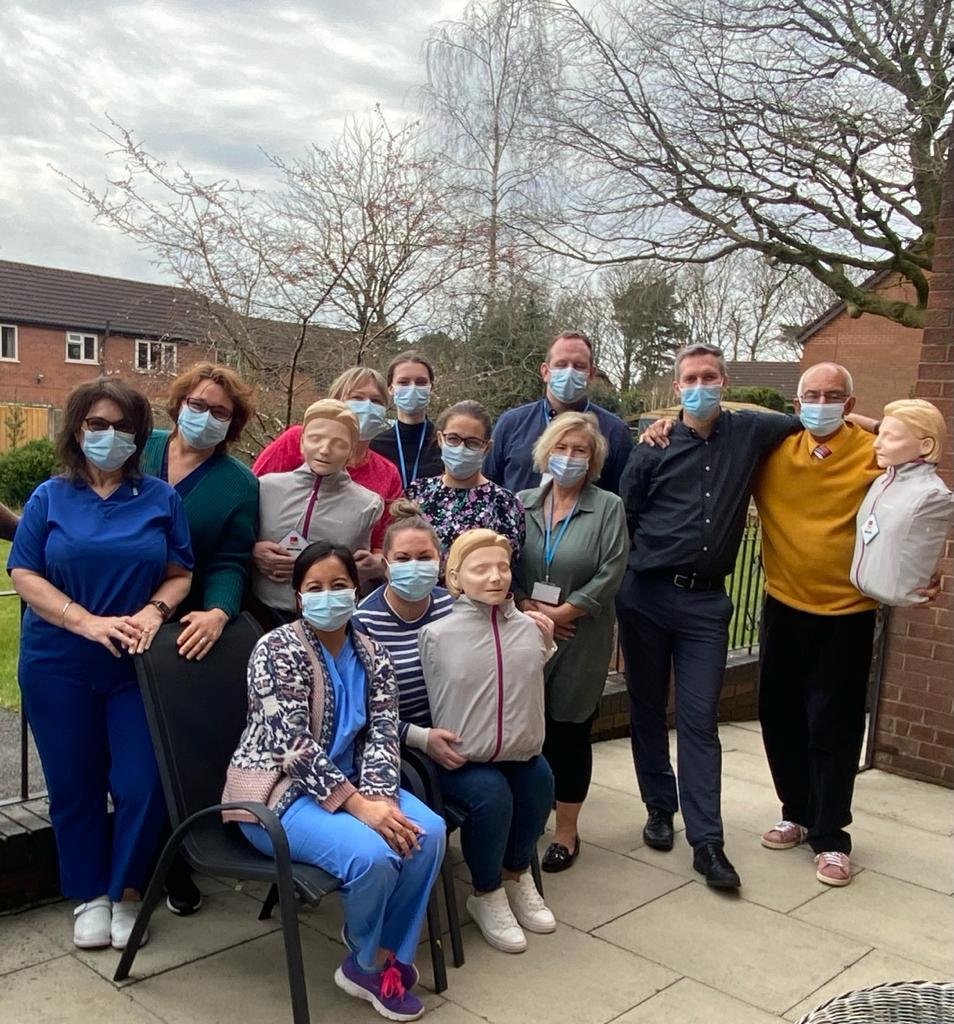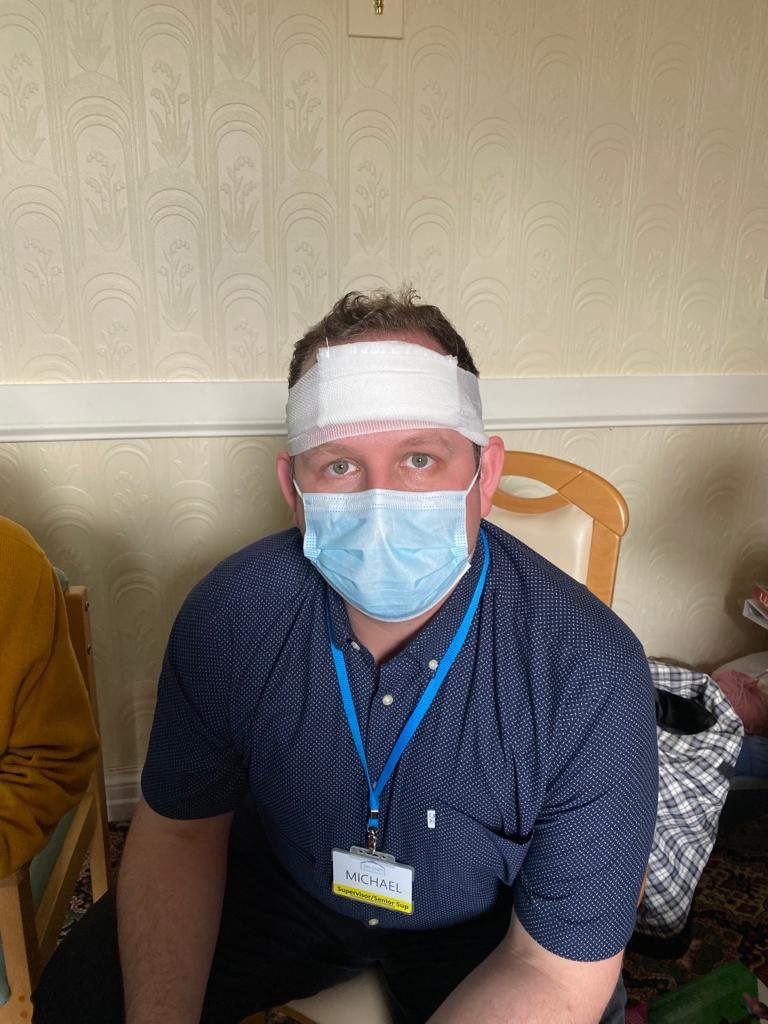First Aid for Seniors
The health and safety of our residents is extremely important to us at Jah-Jireh. With vulnerable ones in our care, planning ahead for emergencies and delivering first aid is a vital part of our duties. “The plans of the diligent surely lead to success,” and so our staff receive extensive training on First Aid and are equipped to deal with emergencies in the home.
In this article, we would like to share a few details about how important First Aid is, how we implement it in our homes, and some pointers that might help you if you are caring for elderly ones.
First Aid – Every Second Counts
According to research, commissioned by the British Red Cross “just 5% of adults have the skills and confidence to provide first aid in emergency situations.” This is a sobering thought because the lack of timely medical assistance could mean life and death in some cases, and prevention of lifelong injuries in others.
The First Aid section on the NHS website says: “Every year in the UK, thousands of people die or are seriously injured in incidents. Many deaths could be prevented if first aid was given before emergency services arrive.” It goes on to list out what to do is someone is injured:
first check that you and the casualty aren't in any danger, and, if possible, make the situation safe
if necessary, dial 999 for an ambulance when it's safe to do so
carry out basic first aid
There are no two ways about it, learning basic First Aid techniques is vital.
First Aid in the Care of the Elderly
First Aid is a comprehensive study that covers many areas of medical injuries. We have picked out three that are common risks among elderly ones for this article.
Falls
Falling from staircases account for the majority of accidents. Over a third of people over the age of 65, and 40% of people over the age of 80 are considered to be in the high fall-risk category. Risk factors include head injuries, lacerations, fractures etc.
First Aid Action:
If someone has fallen and does not appear to be seriously harmed, assist them in finding a comfortable environment. Here is how to put them in a recovery position: https://www.nhs.uk/conditions/first-aid/recovery-position/
Elevate the damaged region and use a cold pack for about 10 minutes to treat minor bumps and bruises. If it looks like a fracture, keeping the fracture as still as possible until you get them safely to hospital.
Help them receive medical attention if they show signs of major bleeding, bruising, or swelling.
It is also important to reassure them and keep them warm.
Cuts and Scrapes
Older ones are more likely to develop cuts and scrapes because of their physical limitations, stability concerns, and the delicate nature of their skin as a result of ageing, sickness, or medications.
First Aid Action:
Clean the wound by removing any debris and wash it with water.
If the wound is bleeding, then apply a clean cloth over it and apply pressure to stop the bleeding.
Raise the wounded location above the level of the person's heart.
Heart Attack
Heart attacks and other cardio-vascular issues are very common among older people. For men, the average age of their first heart attack is 65 years, and for women, it is 72 years.
Symptoms:
Chest pain
Light-headedness
Pulsating pain up and down the left arm
Nausea and cold sweats
Difficulty breathing
First Aid Action:
Call 999
If you think the person is having a heart attack, make them sit, calm them down, and loosen any tight garments.
If they can, they should sit on the floor with their knees bent and their head and shoulders supported. Place cushions behind them or under their knees.
Ask them to chew on an aspirin.
If the person stops breathing, perform CPR. Cardiopulmonary Resuscitation (CPR) is a procedure performed when someone’s heart stops beating. Performing CPR helps keeps the blood flow active until professional help arrives.
Here is more information on how to perform CPR: https://www.nhs.uk/conditions/first-aid/cpr/
First Aid at Jah-Jireh
Respect for life is at the core of everything that we do at Jah-Jireh. Strictly following the guidelines provided by medical experts and the legal requirements of the state help us achieve this.
The Health and Safety Executive outlines the legal requirements for First Aid in the workplace:
“The Health and Safety (First-Aid) Regulations 1981 require employers to provide adequate and appropriate equipment, facilities and personnel to ensure their employees receive immediate attention if they are injured or taken ill at work.”
The Quality Compliance System also mandates that first aid training be an important aspect of care.
Keeping this in mind, all new employees at Jah-Jireh receive basic First Aid training as part of their induction and Care Certificate. This is in fact one of the mandatory training subjects.
To do this effectively, we have just switched to an online E-learning provider called CareSkills Academy. Through this provision, our staff members receive basic First Aid refresher training on an annual basis in addition to what they receive when they first join. In addition to the online training, we have two policies on the QCS system – the PM01 First Aid Policy and Procedure, and CC20 Medical Emergency Policy and Procedure - that staff are encouraged to read and review as part of their annual refresher training. Based on our first aid needs assessment, certain staff members receive additional, more comprehensive training.
We are currently arranging for the Care Managers and the Business Managers to receive First Aid at Work (FAW) training. In addition to this, other senior staff members, supervisors, and shift leaders will receive training in the Emergency First Aid at Work (EFAW) qualification, thus assuring that we will always have more than adequate first aid cover.
First Aid Essentials:
Now that we have discussed the importance of First Aid and what we need to do, you must be wondering where to start! The best place to start is to get a First Aid kit together. It is recommended to keep a First Aid kit in your vehicle and at home or find a location where it can easily be accessed. Here are some items that are basic necessities in a First Aid kit


